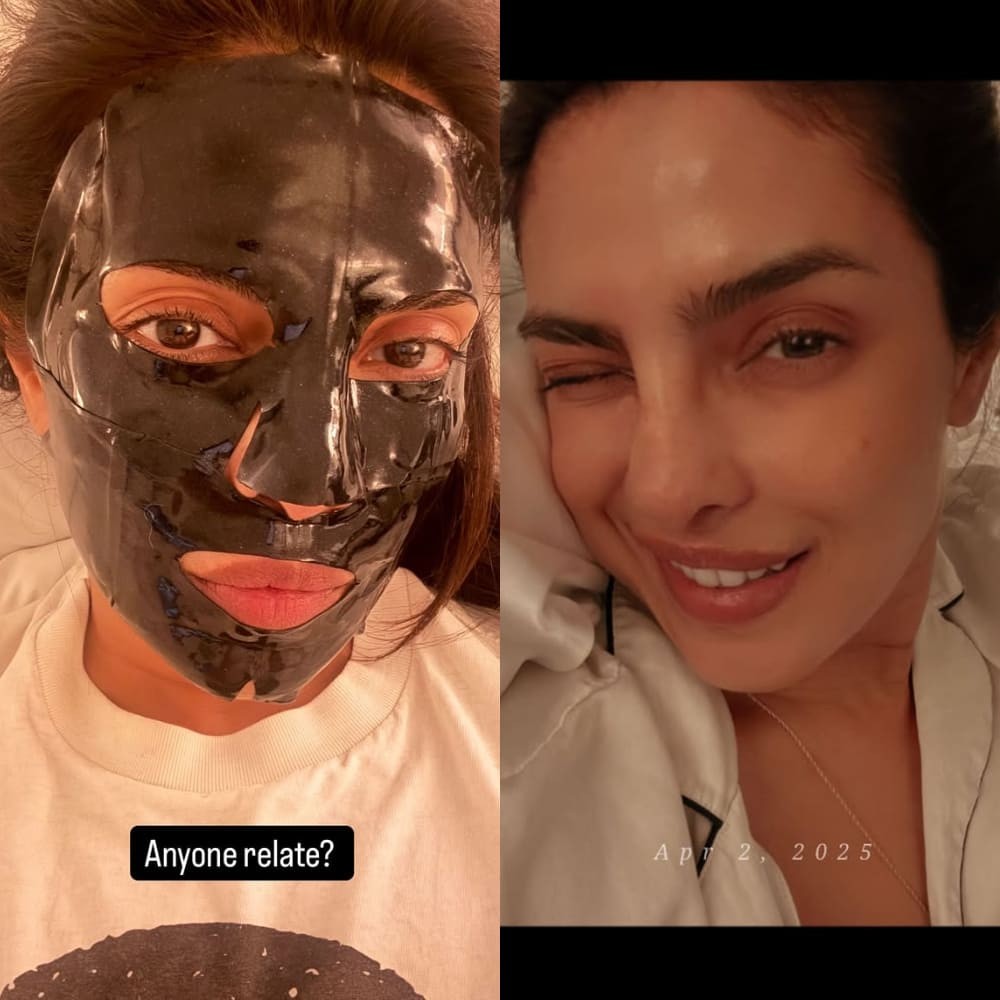How to Stop Sweating on the Face: Everything You Need to Know
Discover practical tips on how to stop sweating on the face – this guide will provide you with solutions to help you stay fresh and confident all day long.
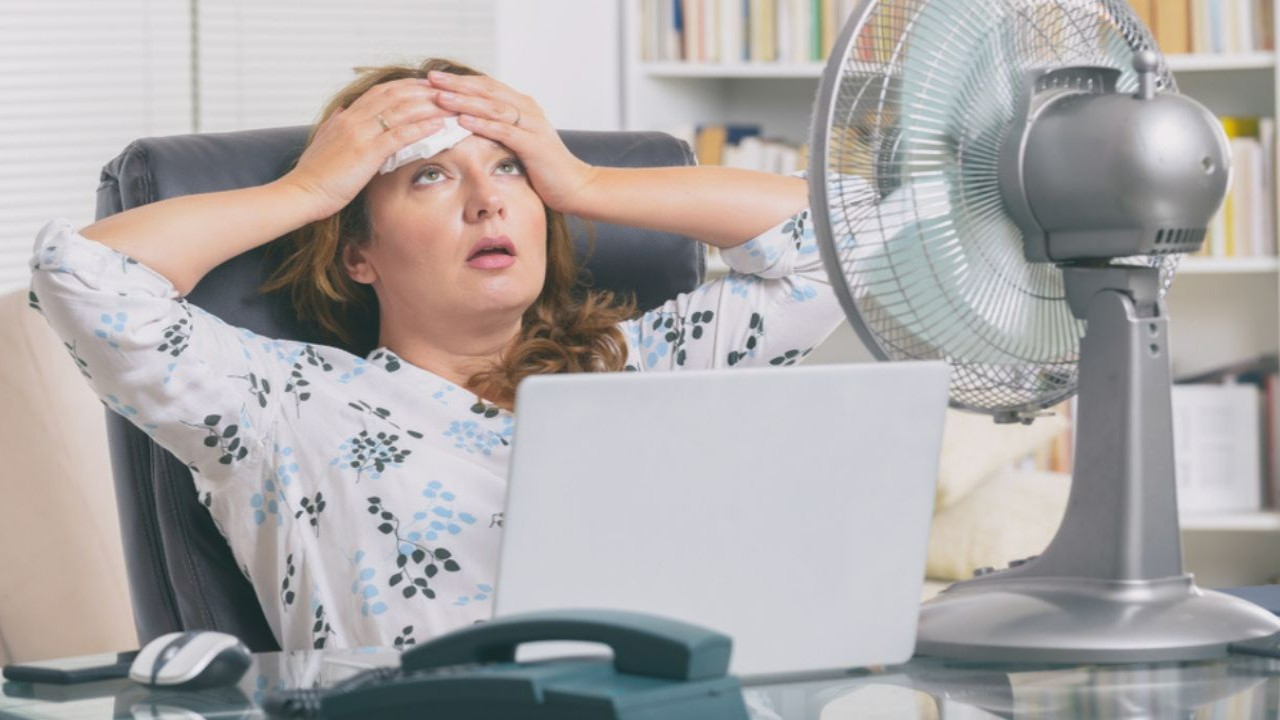
Excessive facial sweating can leave your forehead drenched, and let’s face it, nobody wants to deal with that. That’s why, we’ve created a detailed guide on how to stop sweating on the face – it will cover everything that you need to know about this common yet daunting concern. From understanding what really causes face sweat to finding out if there are any benefits of sweating on the face, we’ve got you covered with all the information that you require.
If you want to get a better understanding of why that annoying forehead sweat keeps trickling down your face, then you need to be aware of the science behind how sweat glands on the face work. Also, we’ll be going over some easy-to-follow tips to control facial sweat, so you’ll know the best ways to manage the issue. From making changes to your lifestyle to being aware of when you need to seek professional help, our expert advice will be sure to guide you with the right practices.
Why Does One Sweat?
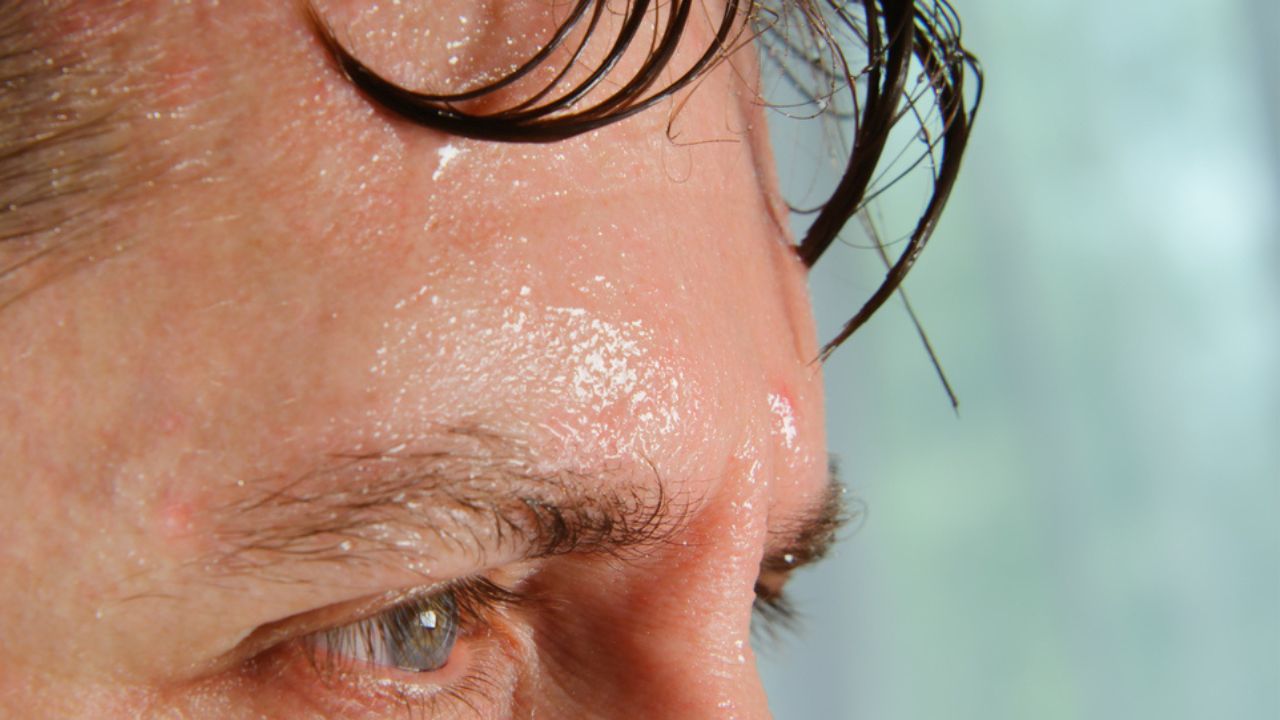
All humans sweat – it’s an important physiological process that acts as a way to regulate body temperature (1). When the body becomes too warm, whether it be due to the climate, physical exertion, or emotional stress, the sweat glands start releasing fluid onto the surface of the skin. The fluid then evaporates, absorbing heat from the body, and helping it to cool down. Sweating is the body’s natural cooling system that helps regulate body temperature and prevents it from overheating (2).
Apart from maintaining the body’s optimal temperature, sweat also plays a crucial role in detoxification (3). Small amounts of toxins like heavy metals get released through the process of sweating, ensuring that the body is overall detoxified, benefitting your well-being (3).
Causes of Excessive Face And Head Sweating
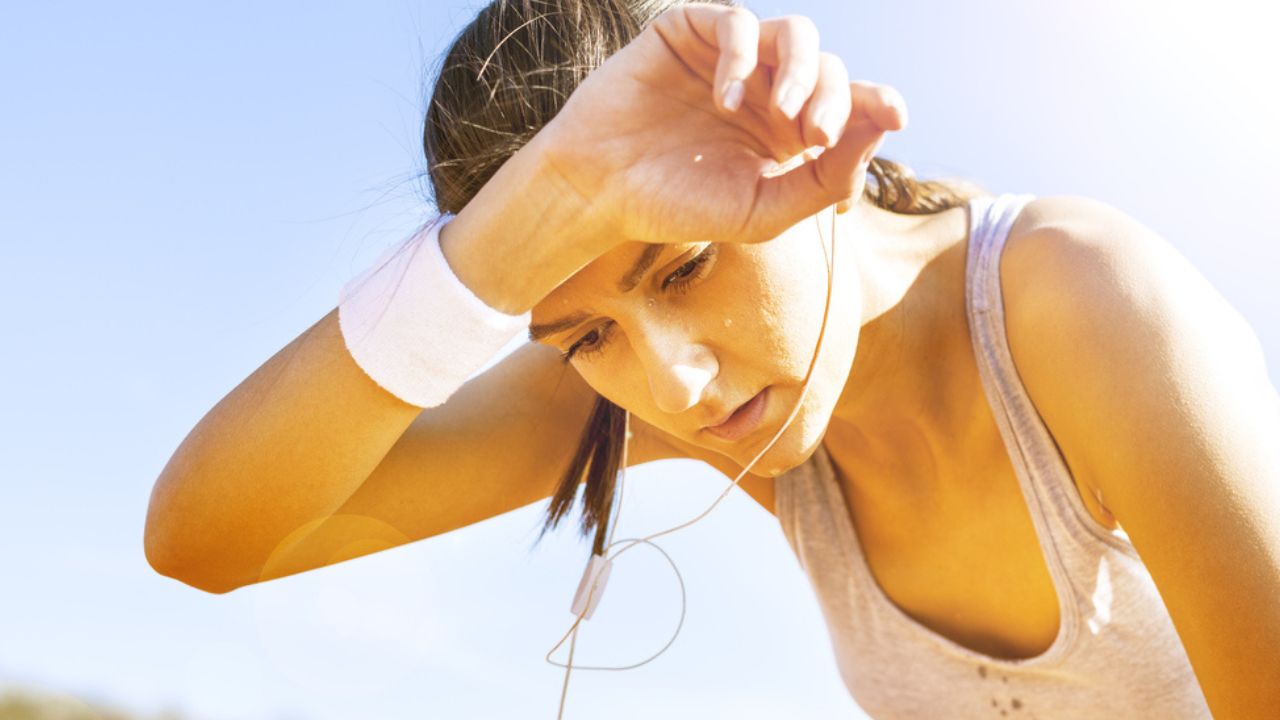
Excessive face and head sweating, also known as facial hyperhidrosis, can be caused by a range of different factors. We’ve listed a few of them below:
1. Genetics
Excess sweating in the head and face may be linked to genetics – this usually tends to run in families, suggesting that it’s inherited (4).
2. Hormonal Changes
Fluctuating hormones, especially the ones that occur during the puberty and menopause period may be one of the causes for an increase in the production of sweat in the face and head areas (5).
3. Stress And Anxiety
Emotion factors such as stress and anxiety can play a major role in triggering your sweat glands, causing them to be overactive (5). This leads to an increased level of perspiration in the facial region.
4. Environmental Factors
Hot and humid weather can induce head and facial sweat, causing individuals to sweat much more than they usually would (6). This can happen without them having any underlying medical condition.
5. Underlying Conditions
Health issues like neurological disorders and hyperthyroidism may speed up the metabolism and cause heightened levels of sweat in the face (7), (8).
6. Medications
Some types of oral medications, such as certain antidepressants or antipsychotics are known to cause excessive sweating as a side effect (9).
7. Overactive Sweat Glands
There are some individuals who may naturally have overactive sweat glands. This causes them to produce excess sweat on the face and head.
8. Obesity
Due to an elevated overall body mass, obesity may be one of the reasons why individuals sweat excessively on the face and forehead head. Apart from that, overweight individuals also face reduced air circulation around the neck and head, making it more likely for them to break into a sweat.
The Advantages And Disadvantages of Facial Sweating
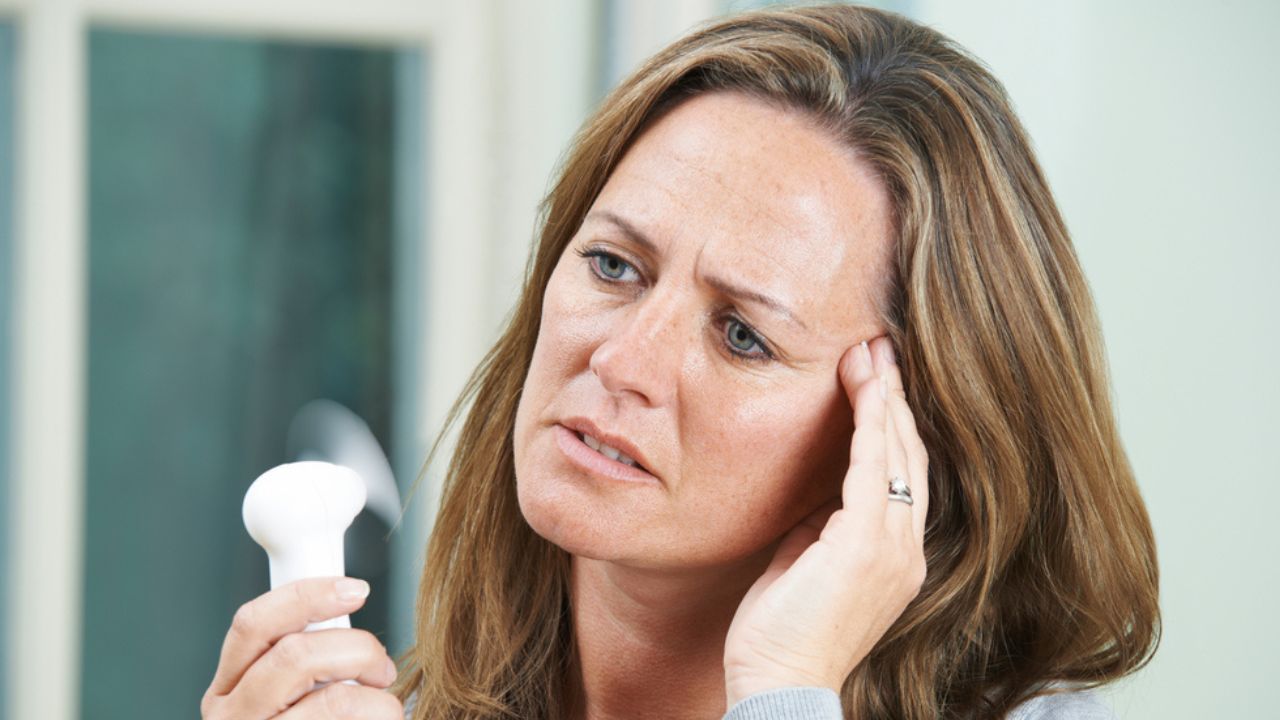
Contrary to what you may believe, there are both pros and cons to a sweaty face. We’ve listed a few of them below to give you a better idea of the subject.
Pros
1. It Gives a Cooling Effect
Sweating on the head and face helps in regulating body temperature (2). This has a cooling effect on the body as the sweat evaporates from the skin.
2. Toxins Get Released
When you sweat, there are toxins and impurities that get released from the skin (3). This can promote a healthier facial complexion.
3. It Acts Like a Natural Moisturizer
Sweat is known to contain elements that are naturally moisturizing (10). This leaves the skin hydrated, making it feel softer and more supple.
4. It Might Help Prevent Acne
Sweating may help in the unclogging of pores, reducing the chances of an acne breakout. It also flushes out dirt and impurities from the skin (11).
5. Blood Circulation Is Improved
Sweating increases blood flow to the face, which in turn may promote better circulation and enhance the delivery of nutrients to the skin (12).
6. It Reduces Stress
Sweat is usually something that’s followed by rigorous physical activity – this helps lower stress levels and improve your overall mental well-being (13).
Cons
1. It May Irritate the Skin
An excessive amount of sweat can cause skin irritation – this is especially seen in individuals who have sensitive skin (14). In some cases, it may also cause redness or discomfort.
2. Oily Skin May Breakout
For some individuals, especially those with very oily skin, the combination of sweat, oil, and bacteria can cause an increase in acne or breakouts (15).
3. There’s a Potential for Dehydration
While sweating is the body’s natural way to cool down, too much sweat without being properly hydrated can lead to dehydration (16). This will have an impact on your skin’s overall health.
4. It Leaves a Salt Residue
Sweat contains high amounts of salt, and when it dries on the skin, there’s a chance that some skin types can get dry and irritated, especially if the sweat isn’t properly cleaned (17).
5. It Can be Uncomfortable
The sensation of sweat dripping and trickling down the face is one that most individuals may dislike. This becomes even worse when they are engaged in activities where they are unable to wipe their face, making it inconvenient.
6. Makeup Gets Smudged
Extreme sweating causes makeup to run or smear, making it a struggle for those who wear makeup regularly. Trying to clean up the mess can sometimes make it appear worse.
How to Stop Sweating on the Face And Head?
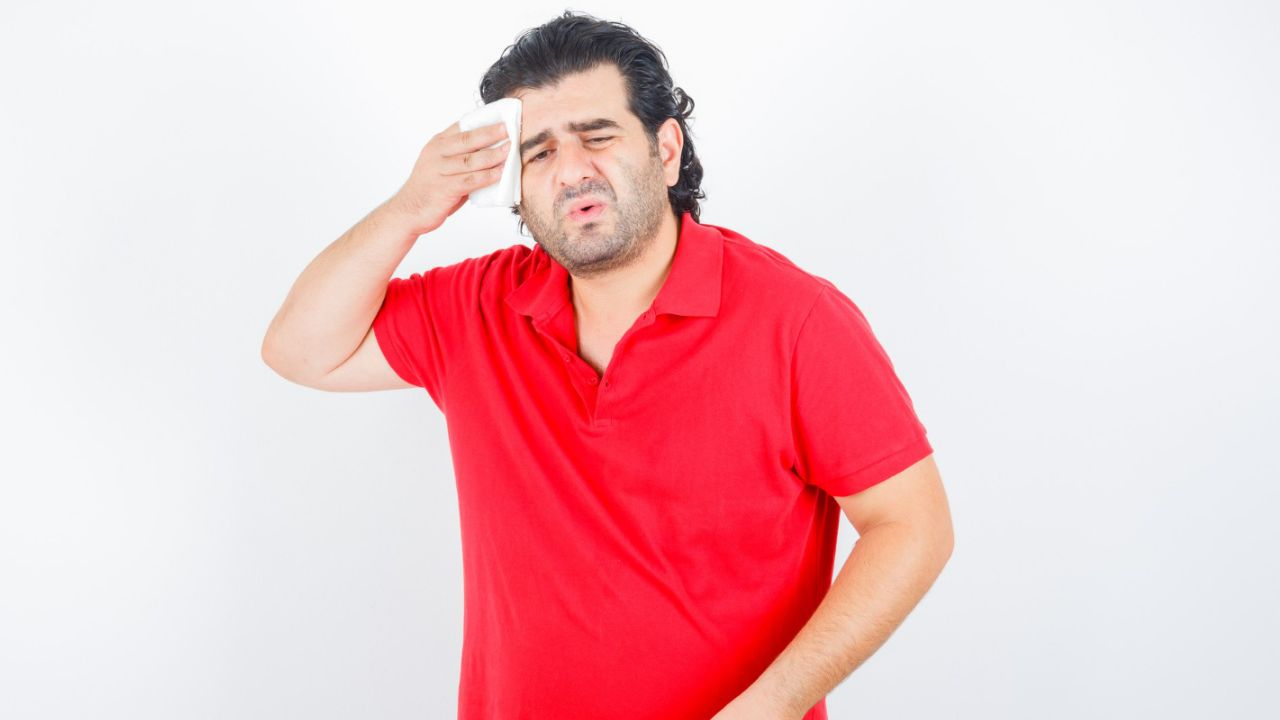
There are a few ways that you can stop excessive facial sweating, take a look at them below:
1. Opt for a Gentle Antiperspirant
Choose an antiperspirant that’s designed specifically for the face – ensure that it’s safe for sensitive skin so that you don’t have to worry about potential irritation.
2. Use Oil-free Facial Wipes
These wipes can be a lifesaver, especially when you’re out and about. They help you to quickly get refreshed and won’t clog your pores or cause breakouts.
3. Wear Clothes That Have Breathable Fabrics
Loose-fitting clothes made from natural fabrics that are lightweight and breathable in nature are known to offer better air circulation. This in turn can reduce the chances of you breaking out into a sweat.
4. Stay Hydrated
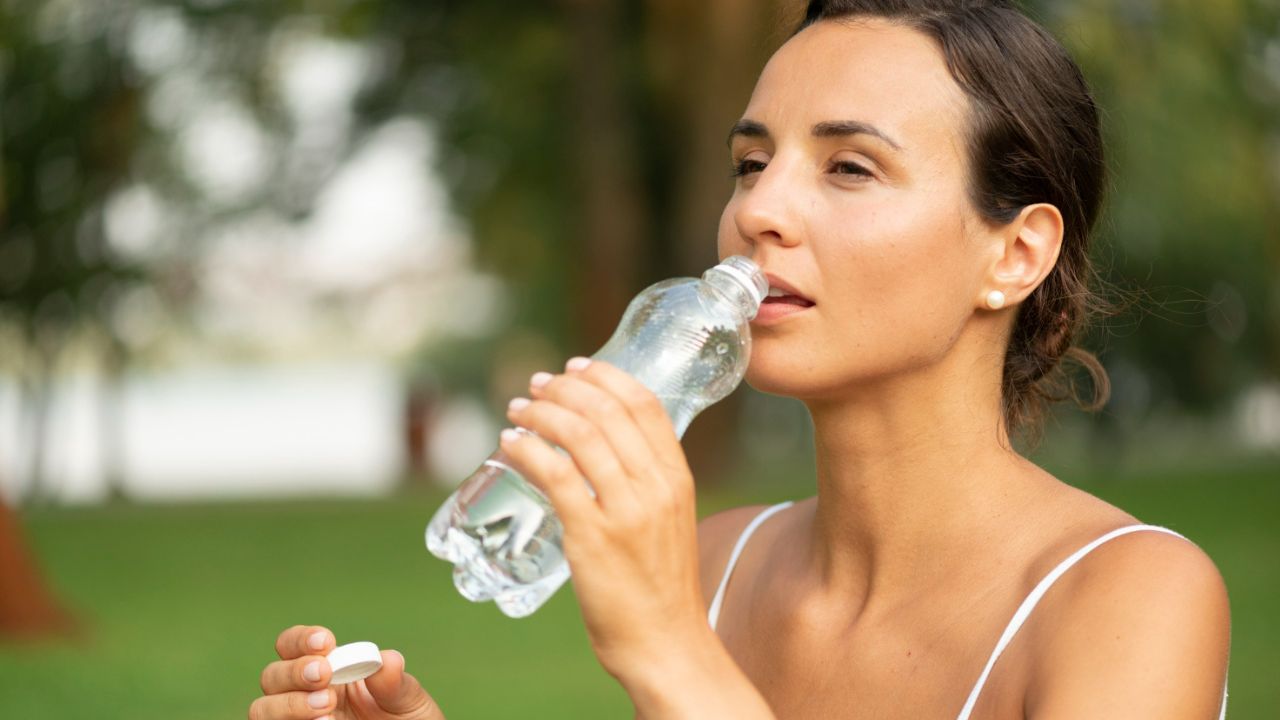
When your body is adequately hydrated, it will properly regulate the temperature (18). This can help reduce the likelihood of excessive sweating.
5. Keep Stress Under Control
Make relaxation techniques a part of your lifestyle – deep breathing and meditation are known to control stress – one of the most common triggers for sweating (19).
6. Stay Away from Spicy Food
Spicy food is another factor that can make you sweat. By moderating your spice intake, you can reduce the chances of facial perspiration.
7. Consult a Medical Professional
If you still continue to sweat excessively, even after trying all of the suggestions above, it is crucial that you seek professional advice from a dermatologist. They will be able to assess the situation, offering you tailored suggestions or information about medical procedures.
Tips to Control Excessive Sweating
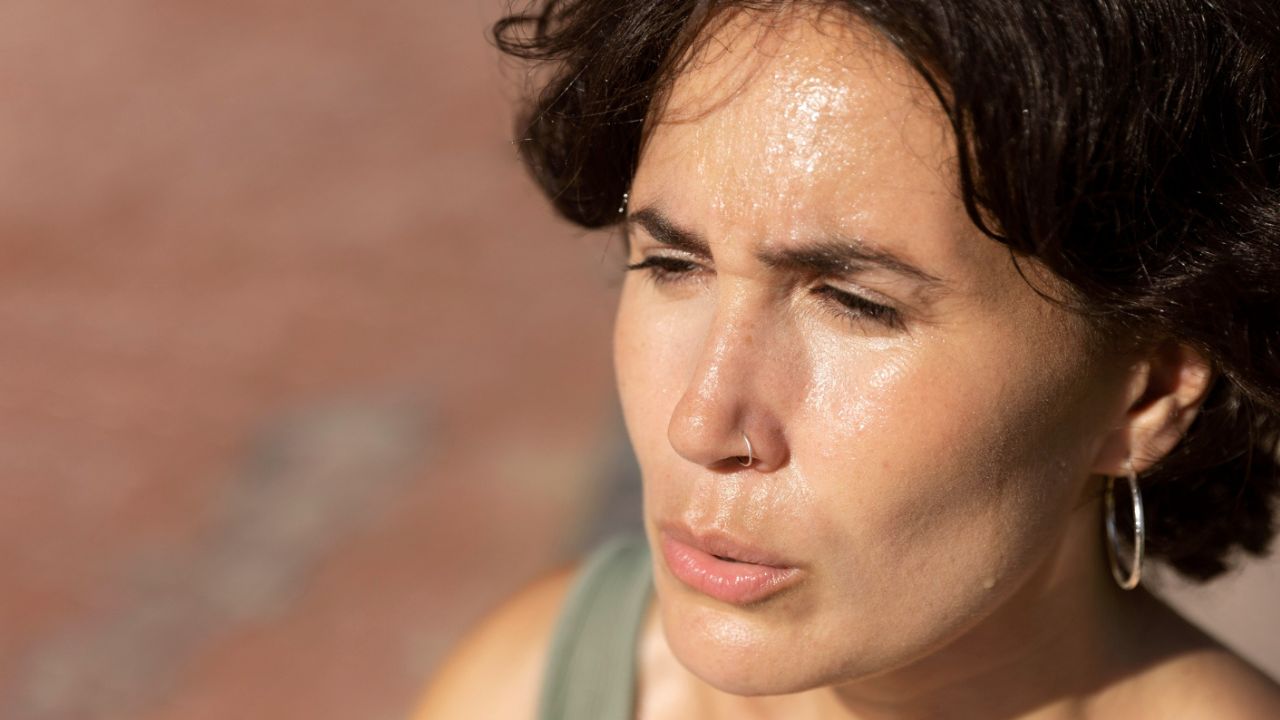
The following are some tips that will help you to deal with excessive sweat, irrespective of the area:
- Take Regular Showers: By maintaining good hygiene, you can keep bacterial buildup at bay. This can prevent you from frequently breaking into a sweat.
- Use Talcum Powder: If there are any areas on your body that are specifically prone to sweating, you can apply talcum powder to absorb excess moisture.
- Wear the Right Kind of Shoes: If you prefer to wear closed shoes and sweat a lot on your feet, opt for pairs that are breathable and made with moisture-wicking fabric.
- Keep Yourself Cool: Ventilation is very important when it comes to maintaining a comfortable body temperature. You can also use fans to help keep you cool.
- Wear a Sweat Sheild: If you want to protect your clothing while also preventing sweat from getting them damp, use an undershirt or a sweat shield as a barrier to absorb moisture.
- Go Slow on the Alcohol: Consuming a considerable amount of alcohol can leave you dehydrated, thus increasing the chances of sweating.
- Apply a Cold Compress: Cold packs can help cool down any areas that are prone to sweating, use them whenever required.
- Keep a Check on Your Weight: It’s important that you stay at an optimal weight range since excess weight may make you sweat more. A healthy BMI reduces the risk of excessive sweating.
When Should I See a Doctor About Excessive Sweating on the Face?

If you’re experiencing excessive facial sweating that’s starting to get in the way of daily life, then it’s time that you consult a doctor. While sweating is a very normal issue that usually isn’t concerning, excessive perspiration on the face in particular can be a sign of an underlying medical issue. If it continues to persist and is making you uncomfortable, professional advice can help you with potential treatment options.
Moreover, if you are also experiencing other symptoms like heart palpitations, sudden weight loss, or a fever, you should seek immediate medical help. A doctor will take into account your overall health, providing you with the best treatment options to manage your specific condition.
Conclusion
If you’ve been wondering how to stop sweating on the face, we’re sure that this article would've delivered some much-needed insight. From understanding what causes excessive facial and forehead sweat, to taking a look at the pros and cons, you’re now aware of it all. Armed with this knowledge and our practical tips to help you with sweating, you’ll be able to navigate this issue and live life more confidently. Whether it’s through smart lifestyle adjustments or seeking the help of a dermatologist, taking proactive steps will help you overcome the issue of uncontrollable facial sweating.
ALSO READ: How to Get Rid of Forehead Wrinkles? Here’s All You Need to Know





 JOIN OUR WHATSAPP CHANNEL
JOIN OUR WHATSAPP CHANNEL



















